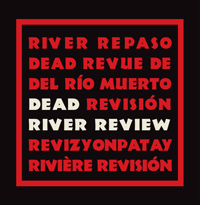by Katie Durant
Because the divorce hearing was held a year and a day after we were married, my husband came to court with an anniversary card. I wore a skirt suit, and he wore his usual tee-shirt and cut-off flannel ensemble. He smiled sweetly and said, “Happy anniversary,” as he handed the card to me.
I laughed – in an ill-humored way. We sat in opposite rows when the bailiff came in. Chris forgot to take off his Bulbasaur hat as the whole room rose to the judge’s entrance. The bailiff berated him.
We took our separate folders with us when we approached the bench. We didn’t own enough to warrant or afford lawyers. I had collected, in duplicate, the papers we needed for the courthouse. I bought Chris his own blue folder and instructed him on how to fill out the forms. I wrote the day and time and location for the hearing on a Post-it note fixed to his folder.
The judge smiled and pulled his glasses down for us. He asked us if we hadn’t better think about it all again. We were still very young, he explained, we could still work it out. I shook my head at the judge. Chris looked at me, nodding. I shook my head at Chris.
“No.”
The judge suggested that we take an annulment since we had filed before our first year was out.
“He didn’t want to do that,” I said with as little venom as possible.
I did push for annulment. Looking forward to a life where I had never been married, I was disappointed that I had to declare, and still have to declare, that I have been married to Chris. This is an unromantic admission on a date that also appears on my subsequent marriage license and certificate. Chris wanted to remain tied to the marriage; he wanted to be followed by the failure, figuring that to fail is better than to not have tried. But we were done with trying; I was done with trying. A declaration of divorce does not legitimize effort; it only speaks to our failure. An annulment doesn’t nullify the effort or the history; it only expunges the public record. It only releases people from the stigma of having failed and from the social and religious implications of this failure. We had indeed failed, and it was a failure of both parties, but I didn’t want to be a divorcee at twenty. I wanted to be single again, I wanted a clean title.
Putting his hand out, the judge asked for my documents. I handed him my folder. It was yellow. Like the sun, like dandelions – like what a new life would feel like.
I was driven to meticulousness in preparation for this hearing. The marriage had been a legally-binding mistake. I could unbind it with money, paper, and grit. So, on March 26th, all correlated and paperclipped, all dressed in my skirt-suit with the leopard lapels, I stood before the judge, wishing I had never been at the altar, but proud of myself for stepping up to this bench.
The judge flipped through my paperwork with his fingers and pulled the papers out and laid them down in front of him. The judge put his hand toward Chris. Chris took his papers out of his folder. He put them into the judge’s hands. The man flipped them twice. He frowned as he began to understand a small part of why I was there.
“These are blank,” he said.
Just as I had relied on thoroughness to pull me out, Chris had leaned upon carelessness to lock me in.
The judge looked at Chris. They both looked at me, and I began to stammer. I was afraid he had won – that we had to come back – that I would stay married for even a day longer. I tried to explain the effort I had put into the folders, the copies, the memo, and the calls reminding him of the hearing.
The judge stacked our papers and folders and handed them all to Chris. He gave Chris a pen. He pointed off to our left.
“You sit over there and copy off her papers.”
Chris took the stack and the pen and walked to the left. Here was the last time he piggy-backed off my efforts.
The judge called after him, “And don’t forget to put your own name on them.”
Not including the folders, this freedom cost one hundred and seventy-five dollars. Of course, Chris never paid his share.








